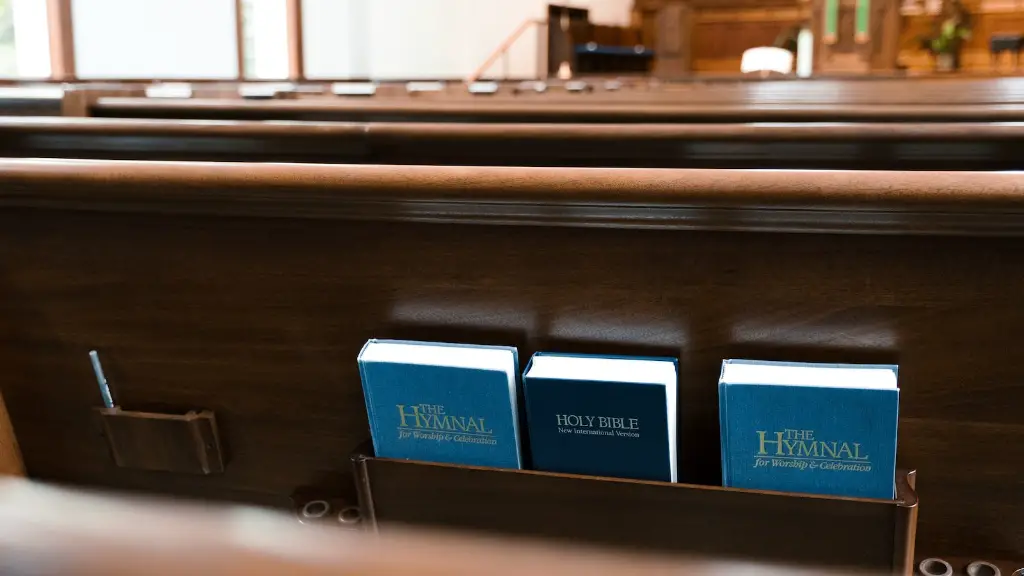Thanksgiving as we celebrate it today, with all its food, fun, and festivities, is usually considered a religious holiday. However, the same concept of showing gratitude pervades the Bible. In fact, the Bible mentions thanksgiving in more than 500 verses, many of which are focused on praising the Lord for the blessings he has bestowed upon us.
We see thanksgiving in the Bible as early as Genesis chapters eight and nine. Here, Noah offers a sacrifice of thanksgiving to the Lord as a thank-you after surviving the great flood. He knew that God had spared him and his family and he wanted to thank him for delivering them from danger. Today we still show gratitude to God for the same reasons we often give thanks at Thanksgiving, because of his immense blessing.
Other verses include Deuteronomy 8:10. This verse reads, “When you have eaten and are satisfied, you shall bless the Lord your God for the good land he has given you.” Here, God is calling on his people to remember to acknowledge his goodness and blessings.
In the New Testament, Thanksgiving is a theme often woven throughout the Bible. Jesus himself said, “Give thanks in all circumstances; for this is the will of God in Christ Jesus for you” (1 Thessalonians 5:18). This verse shows us that it is God’s will to show gratitude, regardless of the situation.
As Christians, we are called to thank God at all times. The Bible says, “Let us thank the Lord God Almighty, who loves us and sent his only Son to die for us,” (2 Corinthians 9:15). This passage reminds us to always show gratitude for the ultimate sacrifice that Jesus made for us.
The Bible gives examples of how to offer thanksgiving to God. We are called to “sing joyfully to the Lord,” (Psalm 33:3). This can be in the form of traditional worship songs or any other joyous form of music. We are also called to make thankfulness a daily practice. Focusing our minds on all the good that we have received from God every day can lead to increased joy and happiness. It is also important to share our thanksgiving with others. When we show appreciation for all the good that God has done in our lives, others may recognize His sovereignty.
Christian Discussions
When discussing Thanksgiving in the Bible, it is easy to see the importance of praising God—not only on the traditional holiday but every day! We are told to “give thanks to the Lord; call upon his Name” (Psalm 105:1). This verse serves as a call to us to raise our voices in gratitude and appreciation to the Lord every day.
Furthermore, Christians should discuss giving thanks in light of the life and teachings of Jesus. In Matthew 17:1-13, we read about Jesus’ transfiguration. Here we can gain insight into how he responded to God’s glory – filled with gratitude and worship. We can learn from this example how we can do the same in our lives, praising God daily for his amazing works.
Finally, conversations about Thanksgiving in the Bible should serve to remind us of the power of giving thanks. We are told to “give thanks in all circumstances; for this is the will of God in Christ Jesus for you” (1 Thessalonians 5:18). No matter the situation, God’s will is that we offer thanks to Him. May we be mindful of this call and give Him thanks at all times.
Local Churches and Bible Studies
During the Thanksgiving season, it is a great time to talk about this topic in group settings or local churches. Bible studies surrounding Thanksgiving verses in the Bible can help to better understand why we should give thanks and how we can thank God in different ways.
It is important to note that Thanksgiving is not just about food, family, and fun. It is about recognizing God’s presence in our lives and expressing our gratitude for the many blessings He has bestowed upon us. Churches can use this time to remind members of the importance of showing appreciation to the Lord and not just to those around us.
At the same time, it is important for churches to model what thanksgiving looks like for the younger generation. Worship services should emphasize singing with thankfulness and including prayers of thanksgiving. Additionally, bible studies can focus on stories from the Old and New Testaments of people who together give glory and praise to the Lord.
Scripture Writings
Writing scriptures about thanksgiving is a great way to center ourselves in gratitude and remembrance. Writing out verses such as “I will bless the Lord at all times; His praise shall continually be in my mouth” (Psalm 34:1) can help to focus our minds on Him and all that He has done. Encouraging children to do the same can help them to learn the importance of thankfulness and create a habit of gratitude in their lives.
Scripture writing is an especially meaningful practice when done by those around the Thanksgiving table. Each person can read their scripture writing out loud to the entire family. This will serve to continue conversations about giving thanks and celebrate everyone’s effort in keeping this practice alive.
Celebration Involvement
The Thanksgiving season is a great time to look for ways to share the message of giving thanks with others. We can choose to volunteer at a local soup kitchen or homeless shelter to serve those less fortunate. Many churches offer mission trips and activities around this time as well, such as writing cards of blessings to those in need.
It is also important to remember to involve our entire family in these acts of giving. Small children can be encouraged to talk about what they are thankful for around the Thanksgiving table. Older children can be given the opportunity to interact with those in need. There are even some families that pray about what charity the family can donate to for the season.
Encouraging Gratitude Everyday
Thanksgiving is a reminder to show gratitude daily. While it may be difficult to practice thanksgiving as we juggle all of life’s tasks, small gestures can make a difference. For example, writing down three good things to thank God for each morning or evening can help us to focus on the good. We can also use social media and other public platforms to share praises.
Encouraging children to practice thankfulness is also important. Parents can integrate this practice into their normal routines and habits. We can talk to children about the stories and verses of thanksgiving in the Bible, reminding them of the importance of being grateful. It is also important to generate a culture of praise in the home, where children can feel comfortable sharing their thankful hearts and being encouraged for doing so.
Embracing Thanksgiving Traditions
Thanksgiving traditions can also be a great way to involve the entire family in showing gratitude. Every year, families can choose a Thanksgiving verse from the Bible to reflect on and write on a special piece of paper. This paper can then be held in reverence by the entire family for the rest of the year.
We can also make a gratitude jar for each family member once the Thanksgiving season has come to an end. Everyone can write things they are thankful for on different pieces of paper and place them in the jar. On each Thanksgiving, these pieces of paper can be read together as a reminder of the blessings and joys of the past year.
Utilizing Technology
Finally, technology can play a big role in helping us to practice gratitude throughout the Thanksgiving season. We can create digital thankfulness boards where we can post pictures of verses or stories related to Thanksgiving. We can also set daily reminders that alert us when to thank the Lord.
We can use technology to share how our families give thanks with the world. Videos, stories and photos of Thanksgiving activities can be shared with social media to spread the message of gratitude. This can be shared in our own homes or churches to model giving thanks for a larger audience.





